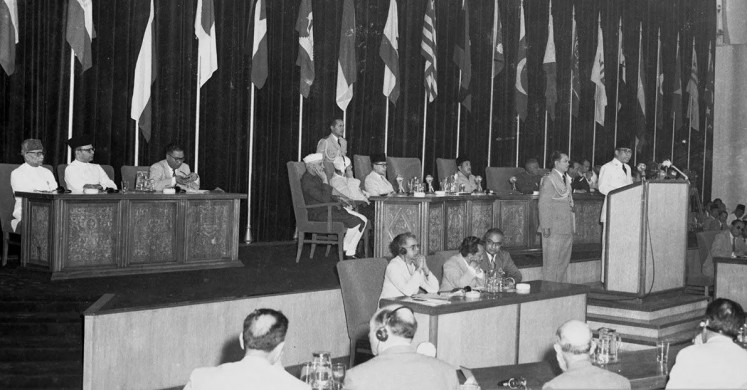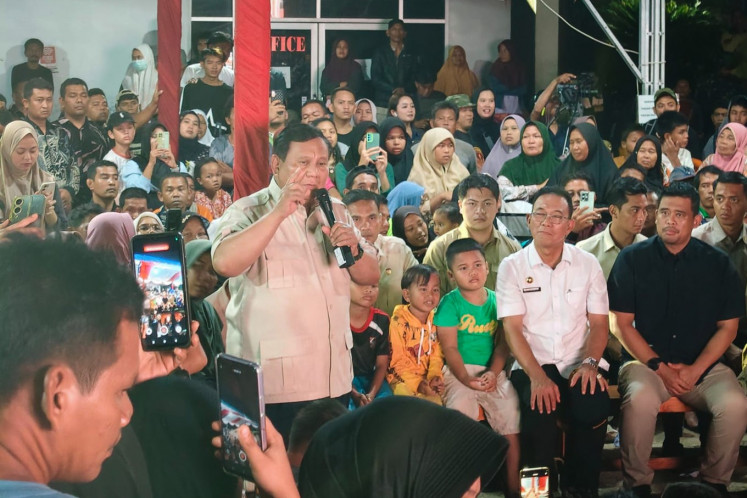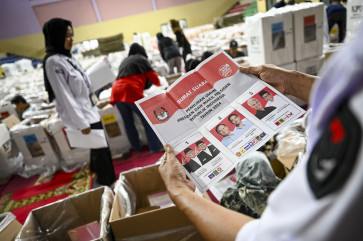Popular Reads
Top Results
Can't find what you're looking for?
View all search resultsPopular Reads
Top Results
Can't find what you're looking for?
View all search results2024 election: A battle to catch the attention of the poor
Society consciously perceives socioeconomic concerns as more pressing than the issue of democratic rights.
Change text size
Gift Premium Articles
to Anyone

The fifth electoral debate on Sunday highlighted the ultimate efforts of candidates to boost their electability. Granted, debates are considered an effective way for the candidates to gain votes.
The effect of debates on electability is not just imaginary. Data from the Centre for Strategic and International Studies (CSIS) shows that over the first four debates, the electability of the Prabowo Subianto-Gibran Rakabuming Raka candidate pair held steady at around 40 to 50 percent. After the fifth debate, their electability polling reached 52.9 percent.
On the contrary, the electability of the Anies Baswedan-Muhaimin Iskandar and Ganjar Pranowo-Mahfud MD pairs failed to hit 30 percent even up to the fifth and final debate.
These figures are peculiar, particularly if we observe that the Prabowo-Gibran pair has consistently been on top after debates.
In fact, the Prabowo-Gibran duo were often harshly criticized for their gestures on stage or comprehension of the substance of the debates. This suggests that maybe they did not win the debates, yet they have been dominating the race. This is an important phenomenon, especially given the domino effect of the post-debate shift of support among undecided voters.
So what actually happened? Debates are known as mechanical battles of ideas, but now that has changed. Is democracy in Indonesia really experiencing a setback? If not, then how can we explain this phenomenon?

To answer these questions, we need to examine the social and economic conditions prior to the election. The election is taking place amid challenging circumstances, with the country still recovering from the impact of the COVID-19 pandemic. According to Statistics Indonesia (BPS), the country’s economy contracted by 2.07 percent in 2020, resulting in deflation and social difficulties.


















